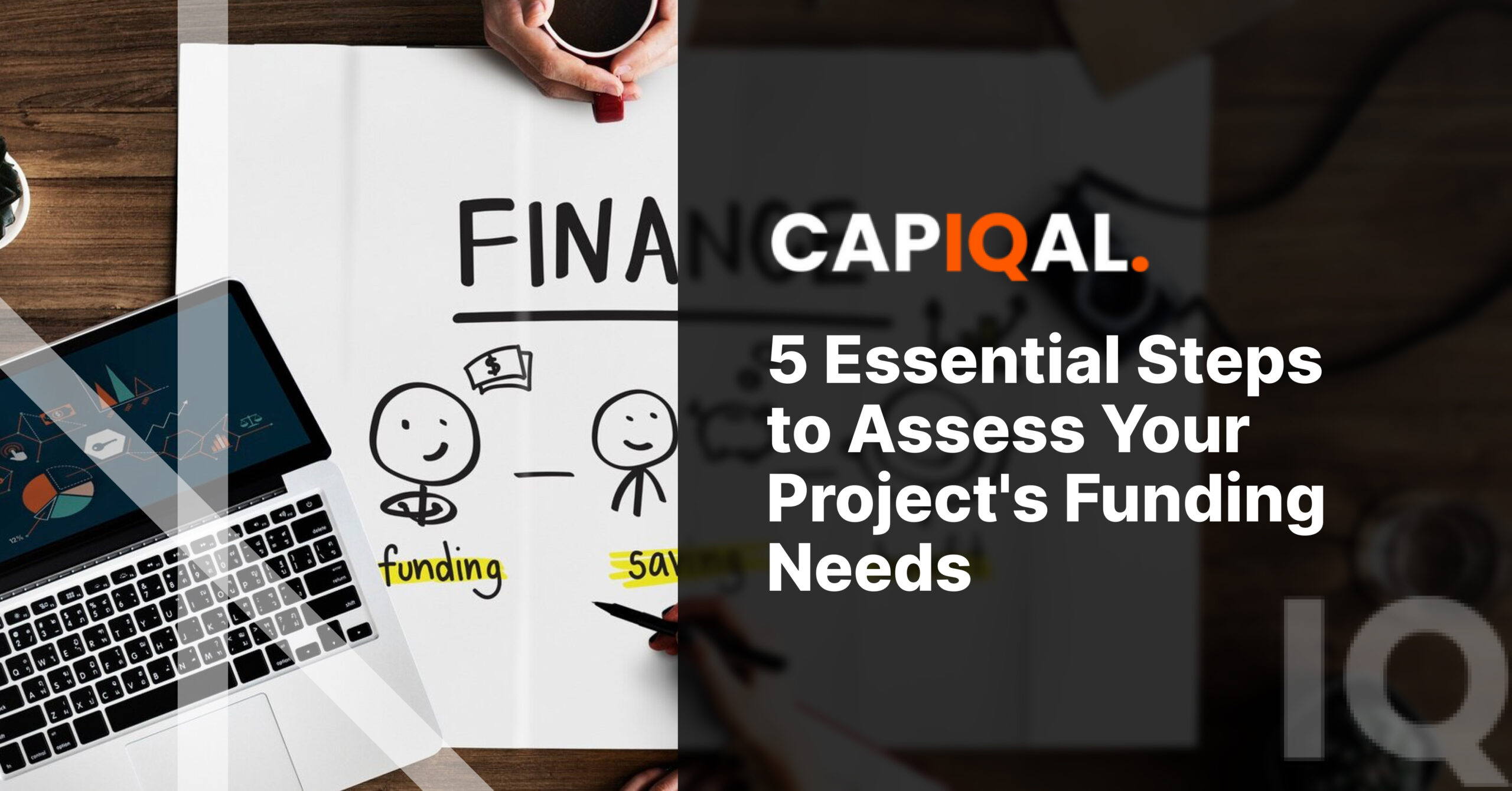The landscape of grant application management is undergoing a profound transformation, with new technologies and innovative approaches reshaping the field at an unprecedented pace. As organisations strive to secure funding in an increasingly competitive environment, staying abreast of these changes is not just beneficial—it’s essential for success.
In this comprehensive exploration, we’ll delve into five emerging trends that are set to define the future of grant management. These trends represent a paradigm shift in how organisations approach the entire grant lifecycle, from initial research and application to project execution and compliance reporting.
By understanding and embracing these trends, organisations can position themselves at the forefront of grant management practices, enhancing their ability to secure funding and execute projects efficiently. Whether you’re a seasoned grant professional or new to the field, these insights will provide valuable perspective on the evolving nature of grant management and how to leverage these changes for your organisation’s benefit.
Let’s embark on this journey to uncover the innovative practices and technologies that are revolutionising the world of grant management, and explore how they can be harnessed to drive success in your funding endeavors.
1. Digital Document Banks
The shift towards centralised digital document storage is rapidly transforming the grant application landscape, streamlining processes and enhancing collaboration like never before. This trend represents a significant departure from traditional paper-based systems or fragmented digital storage solutions. Digital document banks offer numerous advantages in the context of grant management:
1. Improved Accessibility: Team members can access crucial documents from anywhere, facilitating remote work and collaboration.
2. Enhanced Security: Advanced encryption and access controls protect sensitive information more effectively than physical storage.
3. Version Control: Digital systems allow for easy tracking of document revisions, ensuring everyone works with the most up-to-date information.
4. Reduced Environmental Impact: Minimizing paper usage aligns with the sustainability goals of many funding bodies.
5. Cost Efficiency: Reduced need for physical storage space and printing materials leads to significant cost savings over time.
CAPIQAL’s Document Bank Creation service is at the forefront of this trend, helping organisations build robust, easily accessible document repositories. This service goes beyond simple digital storage, offering:
– Customised Organisation: Tailored file structures that align with your organisation’s specific needs and grant application processes.
– Metadata Tagging: Sophisticated tagging systems that make document retrieval quick and intuitive.
– Integration Capabilities: Seamless integration with other digital tools used in the grant application process.
– Training and Support: Comprehensive guidance to ensure your team can fully leverage the digital document bank.
By implementing a well-structured digital document bank, organisations can significantly enhance their efficiency in preparing grant applications. It reduces the time spent searching for documents, minimizes the risk of using outdated information, and facilitates smoother collaboration among team members and external partners.

2. Data-Driven Market Intelligence
In the evolving landscape of grant management, leveraging data analytics to identify grant opportunities and strengthen applications is becoming increasingly crucial. This trend represents a shift from intuition-based decision making to a more scientific, data-driven approach in the grant seeking process. Data-driven market intelligence in grant management encompasses several key areas:
1. Opportunity Identification: Using advanced algorithms to scan and analyze vast databases of grant opportunities, matching them with an organisation’s profile and objectives.
2. Trend Analysis: Identifying patterns in funding priorities across different grantmakers, helping organisations align their projects with emerging focus areas.
3. Competitive Landscape Assessment: Analyzing successful grant applications to understand what makes them stand out and how to position one’s own application effectively.
4. Impact Forecasting: Utilizing predictive analytics to demonstrate the potential impact of proposed projects, a crucial element in many grant applications.
5. Resource Allocation Optimization: Data-driven insights can help organisations prioritize which grants to pursue based on their likelihood of success and alignment with organisational goals.
CAPIQAL’s Market Intelligence service is designed to help organisations navigate this data-rich environment effectively. The service offers:
– Customized Data Analysis: Tailored research and analysis that aligns with your organisation’s specific needs and target grant opportunities.
– Trend Reports: Regular updates on shifting priorities in the grant-making landscape, helping you stay ahead of the curve.
– Competitive Benchmarking: In-depth analysis of successful grant recipients in your field, providing valuable insights for your own applications.
– Strategic Recommendations: Data-informed suggestions on which grant opportunities to pursue and how to position your applications for maximum impact.
By embracing data-driven market intelligence, organisations can make more informed decisions about which grants to pursue, how to craft their applications, and how to align their projects with current funding priorities. This approach not only increases the chances of securing grants but also ensures that the pursued opportunities are well-aligned with the organisation’s mission and capabilities.

3. Consortium-Based Applications
There’s a growing emphasis on collaborative projects in the grant landscape, reflecting a shift towards more comprehensive, multi-faceted approaches to addressing complex challenges. Consortium-based applications bring together multiple organisations, each contributing unique expertise and resources, to create more robust and impactful project proposals.
The rise of consortium-based applications is driven by several factors:
1. Increased Project Scope: Many funding bodies are prioritizing larger, more ambitious projects that require diverse skill sets and resources.
2. Risk Mitigation: By spreading responsibilities across multiple partners, the risk associated with project execution is distributed.
3. Enhanced Credibility: A well-formed consortium can lend additional credibility to a grant application, showcasing a breadth of expertise and support.
4. Resource Pooling: Consortiums allow for the pooling of resources, both in terms of expertise and matching funds, which can be attractive to grantmakers.
5. Cross-Sector Collaboration: Many complex societal challenges require cross-sector approaches, which consortium-based applications are well-suited to address.
CAPIQAL’s expertise in Consortium Building is designed to help organisations navigate the complexities of joint applications, increasing their chances of securing larger grants. This service includes:
– Partner Identification: Leveraging extensive networks to identify potential consortium partners that complement your organisation’s strengths.
– Collaboration Framework Development: Creating clear structures for consortium governance, roles, and responsibilities.
– Communication Facilitation: Establishing effective communication channels and protocols among consortium members.
– Proposal Integration: Ensuring that the contributions of all partners are seamlessly integrated into a cohesive grant application.
– Conflict Resolution Strategies: Providing mechanisms for addressing potential conflicts or misalignments within the consortium.
By effectively building and managing consortiums, organisations can tackle more ambitious projects, access larger funding pools, and create more comprehensive solutions to complex problems. This approach not only increases the chances of securing grants but also fosters valuable partnerships that can extend beyond the scope of a single project.

4. Integrated Project Management Solutions
Holistic project management approaches are becoming essential for grant recipients as funding bodies increasingly emphasize not just the acquisition of grants, but their effective implementation and measurable impact. Integrated project management solutions offer a comprehensive framework for managing the entire lifecycle of a grant-funded project, from initiation to closure.
Key aspects of integrated project management in the context of grant management include:
1. Alignment with Grant Objectives: Ensuring that project execution remains closely tied to the goals and deliverables outlined in the grant application.
2. Resource Optimization: Efficient allocation and utilization of grant funds and other resources throughout the project lifecycle.
3. Risk Management: Proactive identification and mitigation of potential risks that could impact project success or grant compliance.
4. Stakeholder Engagement: Maintaining clear communication with all stakeholders, including funding bodies, project partners, and beneficiaries.
5. Performance Tracking: Implementing robust systems for monitoring project progress against predefined milestones and KPIs.
6. Adaptive Management: Flexibility to adjust project plans in response to changing circumstances while staying within grant parameters.
CAPIQAL’s comprehensive Project Management service is designed to ensure that project execution aligns seamlessly with grant requirements. This service offers:
– Customized Project Planning: Developing detailed project plans that align with grant objectives and timelines.
– Budget Management: Careful tracking and allocation of grant funds to ensure compliance with funding guidelines.
– Progress Monitoring: Regular assessments of project progress against planned milestones and deliverables.
– Reporting Systems: Implementing efficient systems for collecting and reporting project data to stakeholders and funding bodies.
– Quality Assurance: Ensuring that all project outputs meet the standards specified in the grant agreement.
– Change Management: Guiding projects through necessary adjustments while maintaining alignment with grant requirements.
By adopting integrated project management solutions, grant recipients can enhance their ability to deliver successful projects, maintain compliance with grant terms, and build a track record of effective fund utilization. This approach not only supports the success of current projects but also strengthens an organisation’s position for securing future grants.
5. Advanced Grant Compliance and Reporting
The future of grant compliance and reporting is being shaped by emerging technologies and automated systems, revolutionizing how organisations manage their grant obligations. This trend is driven by the increasing complexity of grant requirements and the need for more accurate, timely, and transparent reporting.
Key developments in advanced grant compliance and reporting include:
1. Real-time Monitoring: Continuous tracking of grant-related activities and expenditures, allowing for immediate adjustments if deviations occur.
2. Automated Reporting Tools: Software that can generate comprehensive reports with minimal manual input, reducing the risk of errors and saving time.
3. AI-powered Compliance Checks: Artificial intelligence systems that can review grant activities and flag potential compliance issues before they become problems.
4. Blockchain for Transparency: Emerging use of blockchain technology to create immutable records of grant transactions and activities.
5. Integrated Data Systems: Platforms that can pull data from various sources (financial, project management, HR) to create holistic compliance reports.
6. Predictive Analytics: Tools that can forecast potential compliance issues based on current trends and historical data.
CAPIQAL’s Grant Compliance service employs cutting-edge tools to ensure ongoing compliance and efficient reporting. This service includes:
– Compliance Framework Development: Creating tailored compliance systems that align with specific grant requirements and organisational structures.
– Automated Tracking Systems: Implementing software solutions that monitor grant activities and spending in real-time.
– Regular Audits: Conducting periodic internal audits to ensure ongoing compliance and identify areas for improvement.
– Report Generation: Utilizing advanced tools to create comprehensive, accurate reports that meet or exceed funder requirements.
– Training and Support: Providing guidance to staff on using compliance tools and understanding evolving grant requirements.
– Adaptive Compliance Strategies: Continuously updating compliance approaches to align with changing regulations and best practices.
By leveraging these advanced compliance and reporting tools, organisations can significantly reduce the administrative burden associated with grant management, minimize the risk of non-compliance, and build stronger relationships with funding bodies through transparent and efficient reporting.
Grant Compliance Challenges
71% of grant recipients struggle with compliance
Automated Reporting
75% reduction in reporting time
Grant Management Technology
85% of recipients use technology to manage grants
Grant Recipient Satisfaction
80% satisfied with grant management services
Conclusion: Embracing the Future of Grant Management
As the grant application landscape continues to evolve at a rapid pace, organisations must not only adapt to these emerging trends but actively embrace them to remain competitive in the pursuit of funding opportunities. The future of grant management is characterized by increased digitalization, data-driven decision making, collaborative approaches, and advanced technological solutions for project management and compliance.
Key takeaways from these emerging trends include:
1. Digital Transformation: The move towards digital document banks and integrated management systems is not just about efficiency; it’s about creating a more transparent, accessible, and collaborative grant management process.
2. Data-Driven Strategies: Leveraging market intelligence and analytics is becoming crucial in identifying the right opportunities, crafting compelling applications, and demonstrating potential impact.
3. Collaborative Approaches: The rise of consortium-based applications reflects a shift towards more comprehensive, multi-faceted solutions to complex challenges. Organisations that can effectively build and manage partnerships will be better positioned to secure larger, more impactful grants.
4. Integrated Project Management: The focus is shifting from merely securing grants to ensuring their effective implementation. Integrated project management solutions that align closely with grant objectives are becoming essential for success.
5. Advanced Compliance and Reporting: The use of AI, automation, and potentially blockchain technology is revolutionizing how organisations handle grant compliance and reporting, making these processes more accurate, efficient, and transparent.
By leveraging AI, data analytics, and collaborative approaches, and by partnering with expert services like those offered by CAPIQAL, organisations can navigate the complexities of grant management more effectively than ever before. These technologies and strategies not only streamline processes but also provide deeper insights, enabling organisations to make more informed decisions throughout the grant lifecycle.
The future of grant management demands a proactive approach. Organisations that invest in these emerging technologies and methodologies will find themselves better equipped to:
– Identify and pursue the most suitable grant opportunities
– Craft more compelling and data-driven applications
– Execute projects more efficiently and effectively
– Maintain rigorous compliance with grant requirements
– Build stronger, long-term relationships with funding bodies
As we look to the future, it’s clear that the most successful organisations in the grant management space will be those that can seamlessly integrate these emerging trends into their operations. This integration requires not just technological adoption but also a shift in organizational culture towards more data-driven, collaborative, and adaptive approaches.
The role of expert partners like CAPIQAL becomes increasingly valuable in this evolving landscape. By providing specialized services that align with these emerging trends, CAPIQAL helps organisations stay at the forefront of grant management best practices, enhancing their competitiveness and success rates in securing and managing grants.
In conclusion, the future of grant management is dynamic and full of opportunities for those willing to embrace change. By staying informed about these trends and actively incorporating them into their strategies, organisations can not only improve their grant acquisition and management processes but also position themselves as leaders in their respective fields, driving innovation and impact through effectively utilized grant funding.
For more insights on grant application strategies and to stay updated on the latest trends in grant management, we encourage you to explore our blog. Our team of experts regularly shares valuable information and practical tips to help you navigate the complex world of grants.
If you’re looking for personalized guidance on how to implement these emerging trends in your organisation’s grant management processes, we invite you to get in touch with our team of experts through our contact page. Our specialists are ready to provide tailored advice and solutions to help your organisation stay ahead in the competitive world of grant management.
Stay ahead in the world of grant management with CAPIQAL – your partner in navigating the future of funding opportunities and project success.






0 Comments